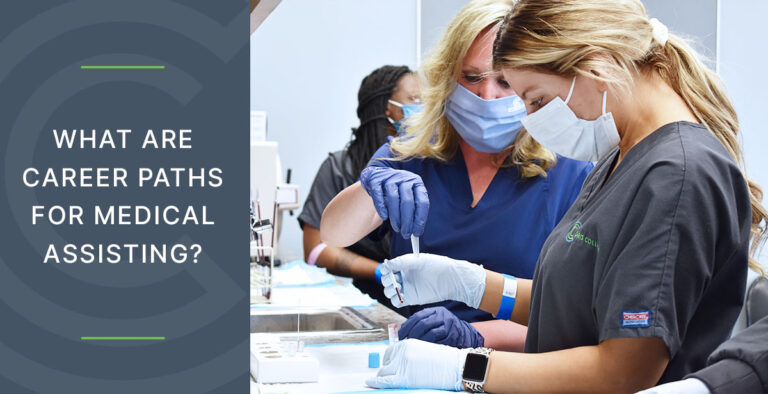A future as a medical assistant is a great choice for those who want to work in the healthcare field but don’t necessarily want to go through the traditional, years of university education to become a doctor or nurse. Medical assistants provide support to physicians and nurses in a variety of ways and are an integral part of any healthcare team, and a career path with plenty of options to consider. If you’re considering pursuing a career as a medical assistant, check out some of the different areas where you can put your training to work!
Outpatient Clinics
In an outpatient clinic, medical assistants typically help with patient scheduling, entering medical records, processing insurance claims, collecting laboratory samples, and performing basic clinical tasks such as measuring vital signs, administering injections, and giving medication instructions. If working in an organized and controlled environment with a wide variety of medical professionals sounds appealing, this might be a great fit for you. Not only will you gain exposure to different types of medical conditions and treatments; you’ll also have the opportunity to develop your skills and knowledge in the medical field. Outpatient clinics may also offer the flexibility to work in full-time or part-time positions.
Clinical Labs
If you enjoy the clinical side of healthcare, you might be the perfect fit for a future working as a medical assistant in a clinical lab setting. Medical assistants who work in clinical laboratories are responsible for carrying out a variety of medical tests and procedures, including but not limited to administering patient tests, such as blood tests and X-rays, taking vital signs, collecting specimens, and processing laboratory results.
There are numerous benefits to working in a clinical laboratory including gaining experience in laboratory technology, clinical practice, and customer service. Another benefit is that the experience gained working in a lab can be applied to many other areas in the medical field, making it an attractive career option for medical assistants.
Retirement Communities
Medical assistants working in retirement communities provide a variety of services to elderly residents. They assist with basic medical care such as taking vital signs, drawing blood, and helping to manage medication. They also help residents with daily activities such as bathing and dressing, as well as providing companionship to their elderly patients. In addition, medical assistants can be responsible for assisting with housekeeping tasks, meal preparation, and any other task that may be required to ensure the well-being of residents.
Working in a retirement community can provide an incredibly rewarding experience for medical assistants. It’s important to remember that taking on this type of role requires patience, compassion, and empathy, which are qualities that are essential when providing care to elderly residents.
Pain Management Centers
Helping patients manage pain might be one of the most rewarding parts of any healthcare career. Medical assistants at pain management centers provide medical and administrative support to doctors who specialize in pain management. The specific tasks of a medical assistant at a pain management center will depend on the size and complexity of the office, as well as their own level of experience. But general duties would typically include patient intake, updating records, scheduling appointments, and carrying out basic clinical tasks like drawing blood and taking vital signs.
At pain management centers, medical assistants have the opportunity to work closely with patients to assist them in managing their pain alongside doctors and nurses. They provide important support in creating treatment plans and helping patients stick to their medication and therapy regimens. Working at a pain management center can be very rewarding for medical assistants as they get to make a real difference in the lives of those in chronic pain.
Nursing Care Facility
Medical assistants working in nursing care facilities typically have a range of responsibilities. These may include providing direct patient care, such as assisting with activities of daily living, checking vital signs, monitoring diets and administering medications. They may also perform administrative tasks, such as filing paperwork, scheduling appointments, entering data into the facility’s electronic records system, answering phone calls, and providing customer service.
Working in a nursing care facility allows medical assistants to witness first-hand the positive impact their work has on patients and their families. Medical assistants also get to build meaningful relationships with the people they work with, including other healthcare professionals, families and other caregivers.
No matter what path you choose for your future as a medical assistant, it’s safe to say you will be given the opportunity to make a difference in the lives of others while you earn a living! If you’d like to learn more about getting on the fast-track to a future in medical assisting, check out the medical assisting program at Caris College. With an accelerated 10-month program and a hands-on externship at an actual healthcare facility, Caris College is helping students launch careers in the growing healthcare industry. Contact us today to get started on pursuing your career in patient care as a Medical Assistant.
